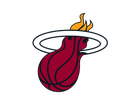Gortat, who is not Jewish, was born and raised in Poland ... a country that experienced the terrors of World War II, Nazi Germany and the horrors of the Holocaust. He told us out in LA this week that he found Kyrie's promotion of the antisemitic film "Hebrew to Negroes: Wake Up Black America!" to be "completely wrong" ... and he then extended the 30-year-old an invite to Poland to help him learn why he feels so strongly about it all.

Against the backdrop of calls for swift action, sources said Tsai had resisted and insisted on taking time to educate Irving on the horrors of antisemitism. He'd enlisted the counsel of the Anti-Defamation League, watched the full three and a half hours of the hate-filled movie Irving had shared, "Hebrews to Negroes: Wake Up Black America" -- complete with its Holocaust denialism and quoting of antisemites such as Adolf Hitler and Henry Ford - and researched the Black Hebrew Israelite movement, whose beliefs Irving frequently references in public settings.

For Tsai, that was it. No more. Irving's refusal to disavow antisemitism and Holocaust denial had convinced him Irving had been insincere in his joint ADL statement hours earlier, sources said. The efforts to educate had failed miserably, his faith in Irving proving once more to have been misguided and ultimately disastrous for his franchise.

To All Jewish families and Communities that are hurt and affected from my post, I am deeply sorry to have caused you pain, and I apologize. I initially reacted out of emotion to being unjustly labeled Anti-Semitic, instead of focusing on the healing process of my Jewish Brothers and Sisters that were hurt from the hateful remarks made in the Documentary. I want to clarify any confusion on where I stand fighting against Anti- semticism by apologizing for posting the documentary without context and a factual explanation outlining the specific beliefs in the Documentary I agreed with and disagreed with. I had no intentions to disrespect any Jewish cultural history regarding the Holocaust or perpetuate any hate. I am learning from this unfortunate event and hope we can find understanding between us all. I am no different than any other human being. I am a seeker of truth and knowledge, and I know who I Am.

Other relatives were also killed. And yet, his grandmother somehow finds light amid the darkness, had a son (Ernie) who came to America not knowing English and became the first NBA player whose parents were Holocaust survivors. “My grandmother always said just because a story is difficult doesn’t mean you shouldn’t tell it,” Grunfeld told USA TODAY Sports. “It was hard. It’s hard to think about these things happening to anybody let alone to your family. For my dad, these were his grandparents who were killed in Auschwitz. For my grandmother, these are her parents and siblings.
Advertisement

Q: Not a lot of people knew the entire story of your dad’s background. Dan Grunfeld: "It’s not something my dad has ever concealed. It’s known. They did a "30 For 30" on him and Bernard. It’s in there – Ernie Grunfeld is the son of Holocaust survivors. In the book, you’ll see his journey. Basketball came out of nowhere and changed the trajectory of my family, and it gave my dad a new life in America. There’s never been a reason to look back much on all these painful things. It’s a hard history. He never had grandparents. They were all killed in the Holocaust. That’s very difficult stuff, so on a human level, you empathize with that. I talk a lot in my book about privilege. I’m privileged in many ways, and one of them is that I have a generation of separation from that tragedy. I can write about it with some distance. My dad never had that luxury. He was so close to it. There has been some catharsis in certain ways (for my dad). It’ll never be easy, for anyone, myself included. Again, I go back to my grandma. Just because stories are difficult doesn’t mean they shouldn’t be told. I think certainly everyone in my family is happy I told it."
Ernie became a college legend at the University of Tennessee and won gold at the 1976 Summer Games. He went on to be a standout player for the New York Knicks, and later, the president and general manager of the team during its 1990s glory days. He's the only player in NBA history whose parents survived the Holocaust.
Leonard apologized and vowed to educate himself about why the slur is dangerous and offensive ... and it's pretty obvious he's been putting in the work. At least, according to Rabbi Efrem Goldberg ... who spoke glowingly about Meyers at Sunday's event -- praising him as a good dude and a "great friend of the Jewish community." Rabbi Goldberg told the crowd, "Over the last 3 months, I’ve gotten to know Meyers off camera and off the court … I've gotten to know what's in his heart and who he is." "Meyers has learned a lot about the Jewish community ... meeting with Holocaust survivors and reading books about Jewish history."

Miami Heat: “Meyers was a key part of our team that made a run to the NBA Finals and we will always be grateful for his contributions and leadership last season. His recent comments were very hurtful and disappointing, but, we are encouraged that he has spent this last week meeting with community leaders, Rabbis and Holocaust survivors to greater understand the impact of his words and we hope that his education will continue. We wish Meyers and Elle the best of luck in the future.”
Dan Grunfeld: My grandma had friends survive the Holocaust who were tortured, beaten, starved and worse. She has seen that individual human beings can handle far more than most of us have ever had reason to know. Our strongest human instinct is to survive — so we are resilient and resourceful, especially when our lives are at stake. When we are pushed, when we are challenged, it is in our nature to respond. In desperate times, she says, people find strength in themselves that they didn’t know existed. This collective and innate strength of humankind is what will carry us through this pandemic.
Advertisement

Gasol, a 18-year NBA veteran, two-time NBA champion and six-time All-Star, searches for hope and meaning during these times. He said he is inspired by people who emerged from horrible situations. Books written by Holocaust survivors have lifted him. He said just finished reading Edith Evan Eger’s "The Choice" and Viktor Frankl’s "Man’s Search for Meaning," which was recommended by Golden State Warriors coach Steve Kerr.
Smith: And what made you want to visit Auschwitz specifically? Ray Allen: There's so many different stories that have come out of the Holocaust, so many different movies that I've watched that really show the human condition, people's will to survive. And, you know, I always ask myself, if I was in those situations, what would I do? Would I be brave? It's easy for me to say I'm brave now, you know. I'm tall. I'm, you know, strong. I've played in the NBA for many years. You know, I come from a good family. You know, it's easy to talk about being brave Now in the position I'm in, but would I be brave if I was under those circumstances where, you know, I had to fight for my survival, having not eaten in days, weeks or months? Like, how tough would I have been then? How strong would I have been?
On Thursday, The White House announced the President has appointed Allen to the United States Holocaust Memorial Council, which was "established by Congress in 1980 to lead the nation in commemorating the Holocaust and to raise private funds for and build the United States Holocaust Memorial Museum." And while this appointment may have you scratching your head in wonderment, it is fitting. Allen is a longtime supporter of the Holocaust Memorial Museum and has brought teammates and friends to the museum on frequent visits.
The Near East Relief campaign raised a staggering $19.5 million from private donations by 1919, and $117 million by 1930 — over $1.6 billion today when adjusted for inflation[c]. Despite the monumental efforts of the Near East Relief, the Armenian Genocide is not recognized by the United States. “Everybody learns about the Jewish Holocaust, but very few know about the Armenian Genocide,” Kerr says solemnly. “It’s not taught in schools, and obviously there are still the political issues of whether Turkey is willing to use the word ‘genocide.’”